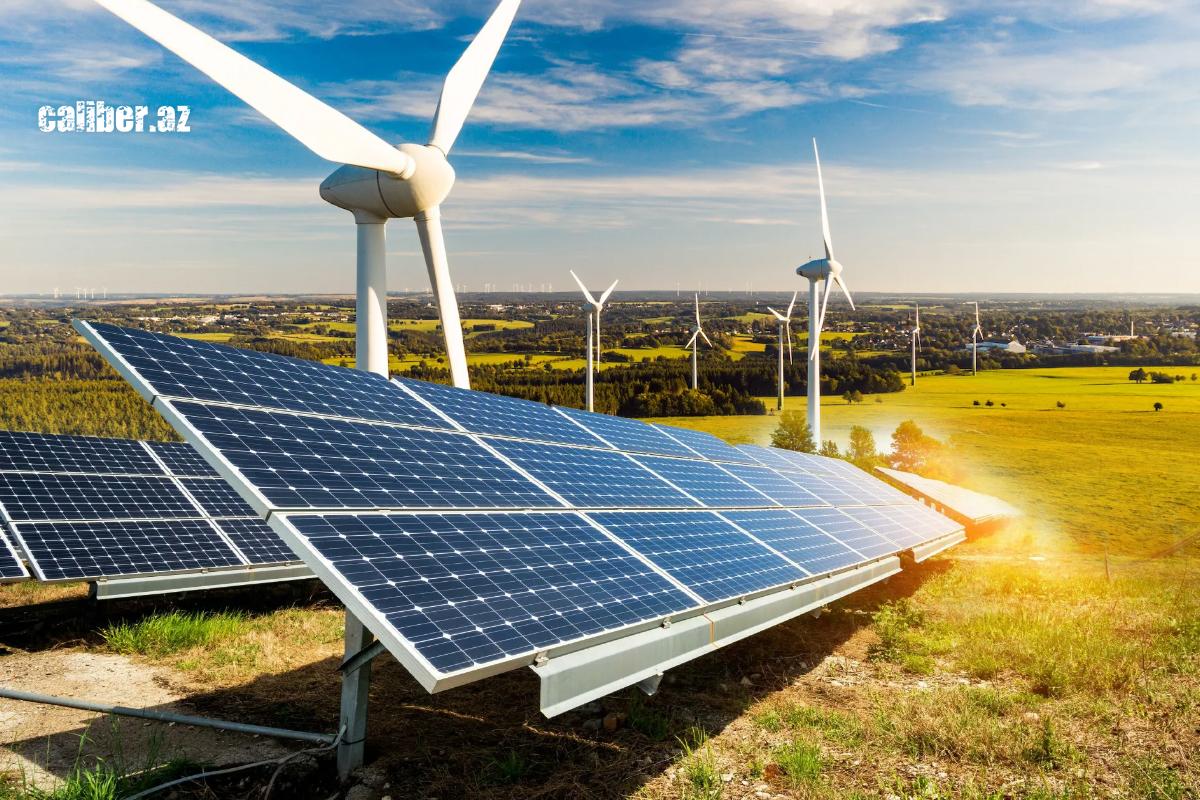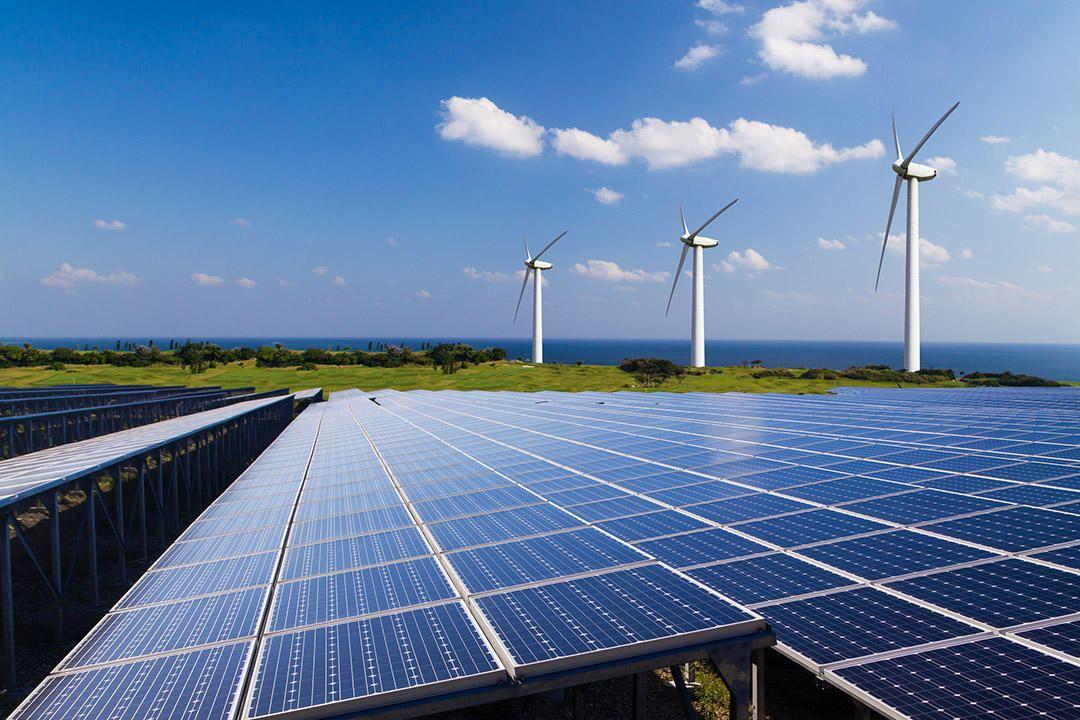How will battery energy storage systems benefit Azerbaijan? Energy in reserve
Azerbaijan’s substantial investments in expanding its power generation capabilities have established the country as the leading producer and exporter of electricity in the South Caucasus. In recent years, the focus has shifted toward developing renewable energy sources (RES). To support the integration of renewable energy facilities into a unified transmission grid, the state energy company Azerenergy has begun modernizing substations.
Another transformative initiative is the planned introduction of a Battery Energy Storage System (BESS) to store "green" energy. According to Deputy Minister of Energy Elnur Soltanov, efforts are currently underway to select a contractor for constructing the country’s first industrial-scale BESS.
In recent years, Azerbaijan has intensified its efforts to participate in the global "Great Energy Transition 2030," achieving significant progress in developing its green energy sector. The country boasts substantial natural potential for alternative energy development, backed by a comprehensive state policy, a new legislative framework, fiscal incentives, and other benefits for investors. Moreover, Azerbaijan has established partnerships with international companies and donors while developing infrastructure to transport "green" energy to global markets.
According to the Ministry of Energy, by the end of last year, Azerbaijan's renewable energy capacity was estimated at around 1,700 MW, accounting for 20% of the country’s total power generation. By 2027, the construction of eight industrial-scale solar and wind power plants is expected to add 2 GW of green energy capacity, increasing the share of renewables to 33% of Azerbaijan’s total energy mix.
These projects, largely financed through foreign investments amounting to approximately $2.8 billion, highlight Azerbaijan's commitment to sustainability. Key investors in the green energy sector include the UAE’s Masdar and Saudi Arabia’s ACWA Power, alongside companies from the European Union, the United Kingdom, Türkiye, China, and other nations working on various projects across the country.
The growing share of wind and solar power generation in Azerbaijan presents a range of challenges, particularly in ensuring the safe integration of renewable energy systems with their intermittent power flows. Variability in wind strength, fluctuating sunny and cloudy days, and the day-night cycle contribute to these fluctuations, requiring careful synchronization with Azerenergy’s unified power grid.
Currently, Azerbaijan’s energy regulatory system relies primarily on large-scale gas-fired power plants, which provide stable output unaffected by weather conditions or climate variability. In contrast, integrating renewable energy facilities necessitates modernizing substations and introducing advanced equipment capable of automatically synchronizing with external reference voltage in terms of level, frequency, and phase.

These upgrades are essential to create a resilient and adaptive energy system capable of accommodating the dynamic nature of renewable energy sources.
The efficient operation of renewable energy facilities, with their inherently intermittent power flows, is impossible without implementing a Battery Energy Storage System (BESS) in Azerbaijan. This technology stores electricity using battery systems, ensuring an uninterrupted power supply during periods of reduced generation, grid outages, or peak demand.
According to forecasts by the International Energy Agency (IEA), the global BESS market is expected to reach $25 billion by 2030. These systems not only provide reliable backup power but also enhance grid stability and make renewable energy more viable. Additionally, homes and businesses equipped with BESS can reduce electricity bills by up to 30%.
These trends are highly relevant for Azerbaijan, and during the COP29 climate conference, the Baku International Sea Trade Port (BISTP) and Malaysia’s Tiza Green Energy (a subsidiary of Citaglobal) launched the country’s first project integrating solar energy with a Battery Energy Storage System (BESS).
The framework agreement includes the construction of a 5.4 MW solar photovoltaic plant. Part of the solar energy generated will meet the port's energy needs, while the surplus will be stored in the BESS and utilized when necessary.
The BISTP's experience with this pilot project is vital for the adoption of energy storage systems in Azerbaijan. This initiative lays the groundwork for developing similar infrastructure on an industrial scale, aligning with the country’s broader renewable energy ambitions.
As Deputy Minister of Energy Elnur Soltanov recently noted, Azerbaijan is in talks with the World Bank to modernize substations and establish new transmission lines to facilitate the integration of renewable energy sources.
"Currently, eight renewable energy projects with a total capacity of approximately 2 GW are underway, and Azerenergy is carrying out the necessary work to integrate these green energy capacities into the country's power grid," said Soltanov. He also highlighted that efforts are ongoing to select a company to develop Azerbaijan’s first industrial-scale Battery Energy Storage System (BESS).
In September of this year, Azerenergy announced a new tender for the development of a 250 MW Battery Energy Storage System (BESS) project, slated for completion by 2027. During the project's first phase, a 50 MW energy storage facility is expected to be operational by the end of this year or early next year.
It's worth recalling that in early May 2024, Azerbaijan's Ministry of Energy signed an implementation agreement with Saudi Arabia's ACWA Power for the development of a 200 MW energy storage system.

China is poised to become a key partner in Azerbaijan's adoption of Battery Energy Storage Systems (BESS) and other advanced energy technologies. During COP29, Azerbaijan’s Ministry of Energy signed a Memorandum of Understanding with China Southern Power Grid International (Hong Kong) Co., Ltd and Powerchina Huadong Engineering Corporation Limited.
The agreement focuses on the joint development of BESS, Pumped Hydro Storage (PHS), High Voltage Direct Current (HVDC) systems, and other technologies for green energy transmission, distribution, and grid digitalization. To ensure effective implementation, a steering committee and a working group will be established to enhance coordination, oversight, and efficiency in deploying these innovations.
Azerbaijan is deepening its collaboration with international financial organizations (IFOs) to secure funding for integrating renewable energy generation into the national power grid. Notably, the Ministry of Energy and the World Bank are accelerating the AZURE project, aimed at integrating 1 GW of solar and wind energy into the country’s transmission network.
In a related effort, the European Bank for Reconstruction and Development (EBRD) provided Azerbaijan with a $30 million loan in May of this year to procure autotransformer equipment for four substations. This initiative supports the integration of new renewable energy generation capacities into Azerenergy’s unified system.
The EBRD considers this project a critical step in enhancing the quality of Azerbaijan’s green energy transition and marks the bank’s first venture into modernizing the national energy system. Upgrading substation equipment will not only increase the grid’s flexibility but also enable the connection of planned green energy facilities, overcoming current technical limitations.








